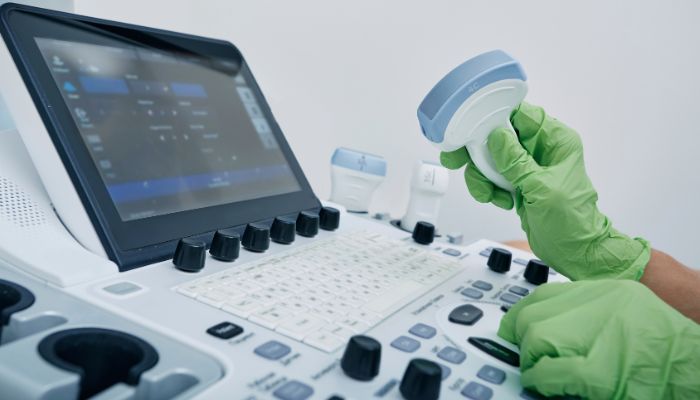
The Sindh Health Department has entered into a memorandum of understanding (MoU) with the People’s Primary Healthcare Initiative (PPHI) and the Centre for Economic Research in Pakistan (CERP) to distribute AI-enabled handheld ultrasound devices in primary healthcare centres across underserved districts.
The pilot programme, which is getting off the ground with funding from the Bill and Melinda Gates Foundation, will distribute 20 devices in six districts and provide pregnant women in remote areas with access to vital diagnostic imaging where a traditional ultrasound device may not be available.
Programme evaluators will also assess how AI-enabled scans could help spur early clinic registration in the Mamta Programme of the Sindh Social Protection Authority so that pregnant people get timely maternal health and child health interventions.
Sindh Health Minister Dr Azra Fazal Pechuho stated during the MOU signing that introducing new AI technology at the basic level of healthcare services would "remove barriers to healthcare access and strengthen referral systems for pregnant women and newborns in rural communities throughout Sindh."
Gates Foundation Senior Program Officer Zeina Sifri added that collaboration was evidence of Sindh's commitment to improving maternal health through innovative programmes and services, which would ensure that "pregnancies are identified sooner and mothers are provided timely intervention."
Under this pilot, ultrasound scans will become a routine part of maternal and child health services under the Mamta Programme.
Health workers will be trained to use the devices, perform safe scans, and follow referral protocols to ensure a smooth continuum of care from community clinics to advanced medical facilities.
















